About CSA Booster (CSAb)
About Us
Climate-smart Agriculture Booster (“CSAb” or “Booster”) is Europe’s leading innovation hub, community and collaboration platform pioneering the transition to climate-smart agriculture across Europe, and around the world. Established in 2015, CSA Booster is a flagship programme of Climate-KIC’s Sustainable Land Use theme, sponsored by EIT, a body of the European Union.
It brings together a multi-stakeholder ecosystem of public and private sector partners including some of the leading research institutions in Europe, corporates, start-ups and international organisations to incubate and catalyse the application, adoption and scaling of innovative and sustainable CSA solutions across Europe and beyond; and to accelerate and de-risk investments into CSA.
To date, CSA Booster has over 50 partners and activities across Europe in all major regions. As of June 2017, the Booster acts as the European regional hub for the Global Alliance for Climate-Smart Agriculture (GACSA) initiative, hosted by the UN Food and Agriculture Organisation (FAO). CSAb is registered on the UN Environment’s Climate Initiatives Platform (CIP) – a database for international non-state cooperative climate initiatives supporting the Paris Agreement.
Our mission
Agriculture contributes 14 per cent of global GHG emissions and is a crucial sector to adopt sustainable, resilient, climate-smart practices.
As one of the world’s largest food producing blocs, Europe’s 12 million farmers, 380,000 forestry owners, its food producers and food retailers all have a vital role to play in delivering to global food security, energy security, climate and UN sustainable development goals (SDGs).
Accelerating climate-smart technology and innovation in European agriculture not only helps EU farmers mitigate and adapt to climate change but has positive impacts on global food production and sustainable land use elsewhere in the world. Agriculture and food are the main industry sectors capturing meaningful amounts of CO2 from the atmosphere.
CSA Booster is committed to creating a European agriculture sector that:
- is adaptive and increasingly resilient to climate change, while maintaining high productivity;
- contributes significantly to climate change mitigation by enabling the reduction or removal of greenhouse gas emissions;
- can scale climate-smart agricultural solutions not only across Europe, but beyond it.
How CSA Booster works
CSA Booster is led by a small team with a Flagship manager and a Project Management Officer supported by other SLU team members. The CSAb team reports to a Steering Committee composed of EIT Climate-KIC, partner representatives and an independent member.
Our team works with its ecosystem of partners to:
- Link diverse actors across the agricultural value chain by creating a multi-stakeholder open innovation platform, growing local ecosystems and activating behaviour change.
- Catalyse the application and adoption of CSA innovations via identification, assessment, validation and scaling of CSA solutions.
- Accelerate and de-risk CSA investments by blending climate and agricultural financing, enhancing data analytics and tools, and developing public-private financing schemes and insurance mechanisms.
Our Approach
To allocate its budget efficiently and plan for sustainability, CSAb divides its activities into two pillars:
Pillar 1 – Capacity-building and knowledge management.
Ongoing capacity-building projects and initiatives that build infrastructure and strategic “knowledge assets” for CSAb. Current initiatives under this pillar are:
Pillar 2 – Project portfolio
Facilitation and implementation of impactful, scaleable, and sustainable projects to support the following objectives:
- to explore and validate new concepts and business models
- to apply, demonstrate and co-create solutions in situ
- to pilot products and services
- to generate revenue / financial returns and support sustainability
Currently, our project portfolio focuses on three key themes:
- Agtech: technology innovations in soil resilience and carbon sequestration, precision and digital agriculture, and sustainable water and land use practices.
- Agri-finance and insurance: data and risk analytics, M&E tools, public-private and blended-return agri-financing facilities, and insurance-transfer/sharing mechanisms
- Innovation and technical assistance: value chain analysis, policy analysis and support and business modelling and co-creation.
Get involved
Please follow us on twitter at @CSABooster and on LinkedIn to learn about our latest news, case studies, events and more. If you are an innovator, business or research institution reshaping our agrifood system, we’d love to hear from you.
For membership, sponsorship, collaborative research and business opportunities please contact Pan Pan – Flagship Manager, Climate-smart Agriculture Booster, and Deputy Director, Sustainable Land Use theme, EIT Climate-KIC at pan.pan@climate-kic.org.
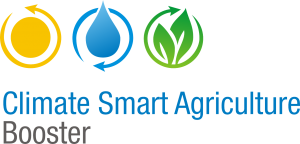
Meet our international team
The CSA Booster works across European agrifood value chains with a multi-stakeholder ecosystem of partners including over 50 leading EU research institutions, farmer organizations, businesses, entrepreneurs, and international and governmental organisations.
Meet our international and interdisciplinary team:
Steering Committee
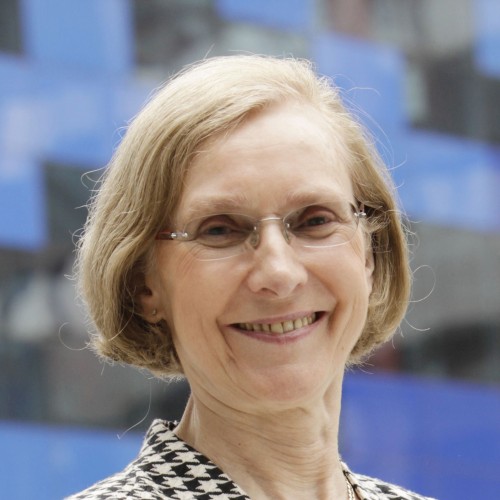
Dr. Mary Ritter OBE
Mary is Professor Emeritus at Imperial College London and International Ambassador for EIT Climate-KIC (Europe), and is Interim Chair of the Board of Climate-KIC Australia Ltd. She currently chairs the Steering Committee of the Climate Smart Agriculture Booster Flagship.
From 2010-2014, Mary was founding CEO of EIT Climate-KIC – Europe’s leading public-private partnership addressing climate change – guiding it from inception to its current community of >200 partners from academia, business and regional/city government. In her current International Ambassador role, she is working to extend the global impact of the KIC model. In particular, in 2015-2016 she established and led a cross-sectorial team in Australia to develop the independent enterprise ‘Climate-KIC Australia’ - founded in December 2016.
Following a Doctorate in Immunology from Oxford University, Mary held academic posts in the USA and UK focussing on research into development of the immune system and published widely on this. She was Pro Rector (Pro Vice Chancellor) Postgraduate Affairs and then Pro Rector International Affairs at Imperial College London (2004-2011). Her two major projects in this latter role were the development of EIT Climate-KIC and the establishment of a joint medical school between Imperial College London and the Nanyang Technological University in Singapore (LKCMedicine).
She sits and has sat on many international and national committees including the National Research Foundation Fellowship Evaluation Panel in Singapore, European Universities Association (EUA) Institutional Evaluation Programme Panel of Experts, EUA Council for Doctoral Education, the German Excellence Initiative (Institutional Strategies) Evaluation Group, and the Programme Review Committee for the Cambridge-MIT Institute (CMI).
Mary is an elected Fellow of The Royal Society for the Encouragement of Arts, Manufactures and Commerce (FRSA), Royal College of Pathologists (FRCPath), Royal Society of Biology (FRSB) and City and Guilds Institute (FCGI). She was awarded an OBE in the 2014 New Year Honours for her service to scientific research and innovation.
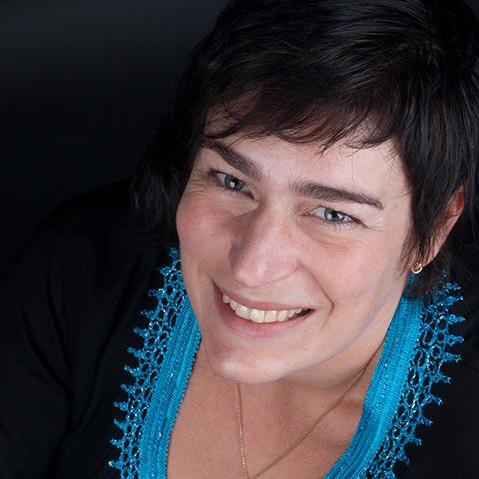
Dr. Saskia Visser
Dr Saskia Visser is program leader of the Sustainable Land Use program at Wageningen Environmental sciences (WEnR) where she works on topics including Soil Health, Sustainable Food Production, Climate Smart Land Management, Land Use optimization and Data Management for Sustainable Land Use.
Saskia is one of the founders of Climate-KIC’s flagship programme CSA Booster, and develops the Soil-Food-City Nexus program for the Flevocampus. In her research, Saskia integrates physical process-based research with social learning and participatory policy development.
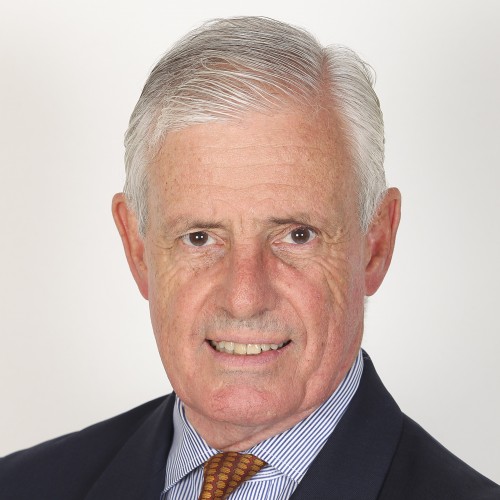
Seán Cleary
Seán Cleary is Chairman, Strategic Concepts (Pty) Ltd; Founder, FutureWorld Foundation, and a Director of Companies.
He on the Faculty of the Parmenides Foundation; chairs the Advisory Board of the Global Economic Symposium, is a Board member of the Salzburg Global Seminar, and a Strategic Adviser to the World Economic Forum.
He studied social sciences and law and has an MBA from Henley. He served on the staff of the Commander Maritime Defence, before diplomatic service in Iran, the USA and Namibia, where he initiated negotiations between all political parties, the release of political prisoners and the adoption of a Bill of Rights before independence.
He served on the Facilitating and Preparatory Committees of the South African Peace Accord, chairing the Working Group on the Code of Conduct for Political Parties and Organizations; on the Executive of the NEPAD Business Steering Group; and as Senior Adviser to the Arab Business Council. Between 2003 and 2016, he served on the Boards of LEAD International, the International Foundation for Electoral Systems, Carbon War Room, Rocky Mountain Institute; and Operation Hope.
He has received public service awards, been published in academic journals, and co-authored Resilience to Risk (2006), and Global Risks (2007).
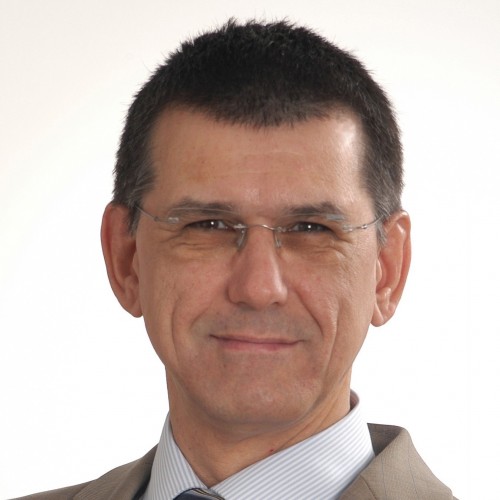
Dr. Bernd Uwe Schneider
Dr. Bernd Uwe Schneider is Head of Staff of the Scientific Executive Board at the Helmholtz Centre Potsdam – GFZ German Research Centre for Geosciences, the National Lab for Geosciences in Germany. Uwe Schneider completed his degree in Forest Engineering at the Faculty of Forest Sciences in Göttingen in 1984 and was awarded a Ph.D. in Soil Sciences and Plant Nutrition at the University of Bayreuth.
He spent 5 years in Guatemala and Honduras as a Forest Expert for the German Technical Mission (GTZ). From 1995 to 2006 he worked at the Brandenburg University of Technology (BTU) in Cottbus where he headed the working groups on renewable energy production and alternative land-use systems, carbon storage, forest ecology and soil biology with special emphasis on root systems. At that time he initiated the establishment of Germany’s largest landscape laboratory on energy forests and agroforestry systems still forming the basis for ongoing research activities in close cooperation with local farmers.
Uwe Schneider has coordinated several EU and German joint research projects in addition to a number of basic research projects funded by the German Research Foundation and the Federal Ministry of Research and Education. He is member of the German Soil Science Society (DBG) and has lectured at both German and international study courses.
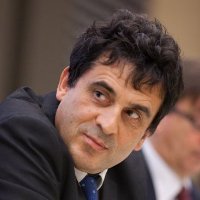
Daniel Zimmer
Daniel Zimmer has a global experience on climate and water related issues spanning from engineering to geopolitics and with a particular interest for innovation. He worked for several years (1988-2001) as a researcher and head of a research department in a French Public Research Centre (IRSTEA).
Between 2001 and 2009, Daniel was CEO of the World Water Council, an international umbrella organisation of the water sector based in Marseilles, France. He contributed to the development of this institution and to its triennial flagship event, the World Water Forum. During his time there, he developed political processes for Governments and Local Authorities, and managed projects on financial issues, climate, disasters related to water.
After a short period as a consultant to the UN and other international institutions, he joined the Climate Knowledge and Innovation Community (Climate-KIC) in 2010 as Director for Innovation. He developed and supervised the implementation of a portfolio of innovation activities aiming to accelerate the transition to a low carbon and climate-resilient economy and society. Since 2016, he has been Director of the Sustainable Land Use theme of Climate-KIC.
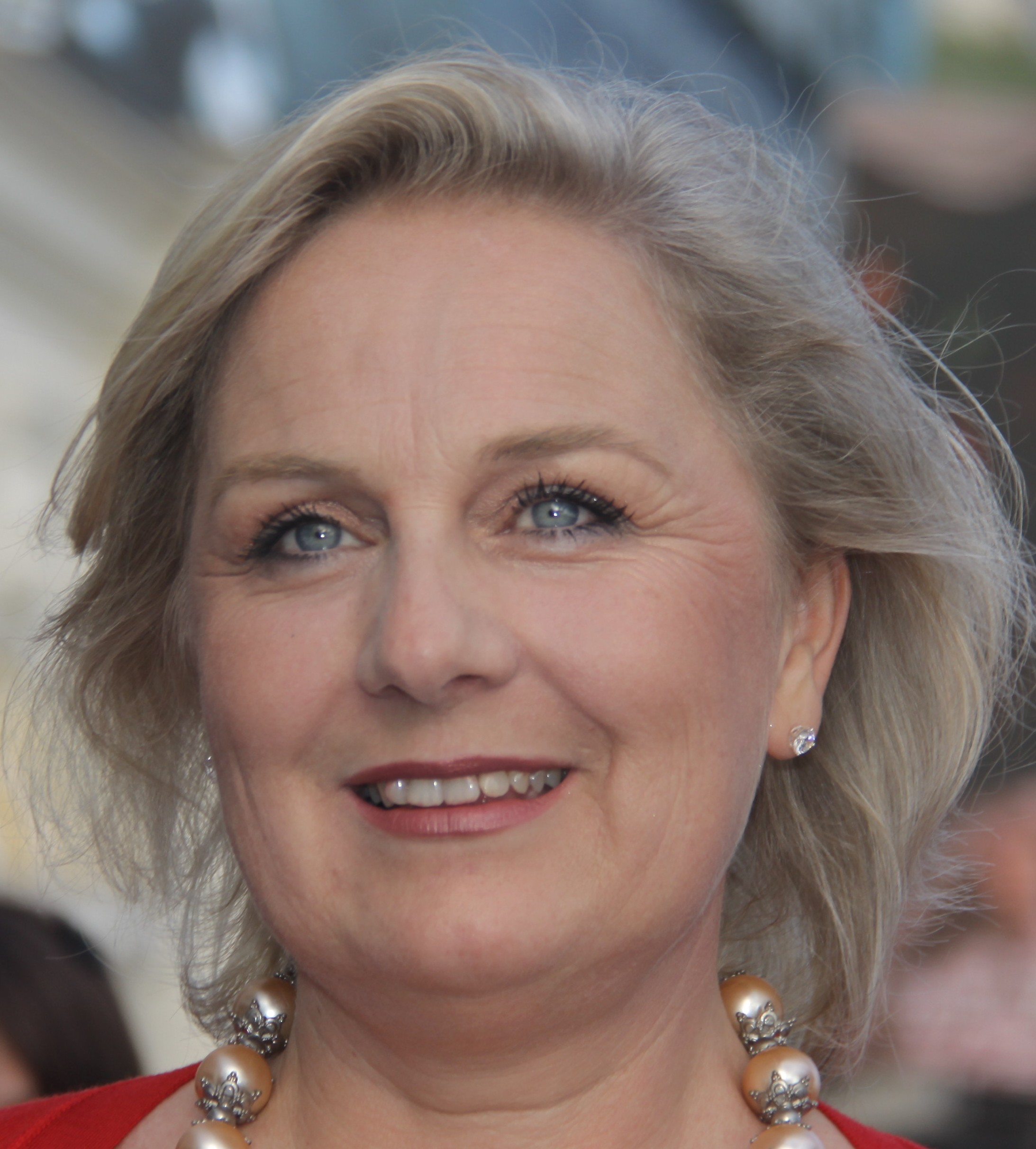
Suzanne Reynders
Suzanne Reynders has a background in science and management and is currently Senior Advisor for Public Private Partnership at the Scientific Directorate for Environment at INRA, the French National Institute for Agricultural Research.
Suzanne started her career as a research scientist and has a PhD in plant breeding, specialising in fruit trees and roses. In 1999, she enrolled the Master of Management at SKEMA Business School to focus her career on helping scientists establish public private partnerships at a pan-European scale which framed her career within two of France’s leading national research institutes, INRIA and INRA.
At INRIA Sophia Antipolis Méditerranée (the French National Research Institute for computer science and applied mathematics), Suzanne managed partnerships with more than 500 researchers and engineers. She also coordinated Challenge Jeunes Pousses, a business-plan competition for teams of engineers and management students and established INRIA’s first International Research Staff Exchange Scheme (IRSES) Marie Curie programme.
At INRA, Suzanne moved from the Valorisation Directorate (now Partnership and Innovation Directorate) in 2012, to join the Scientific Directorate for Environment developing Public Private Partnerships and coordinates INRA’s participation in Climate-KIC.
Suzanne has a strong track-record managing multiple projects involving diverse stakeholder groups and has facilitated several strategic corporate partnerships for Climate-KIC's community, most recently with Danone. She has been closely involved in the creation of Climate-KIC’s flagship CSA Booster programme and is leading development of its ground-breaking “Agrisource” Open Innovation Platform (OIP).

Tom Bakkum
Tom returned to Europe in 2011 with his family and worked with the Utrecht Sustainable Institute as senior cluster manager water and integrated projects, set up the European HQ of The Energy and Resources Institute with it global HQ in New Delhi. Tom decided in 2013 to join EIT Climate-KIC where he became Director for the Benelux in July 2016. He is an avid sailor and adventurer.
Advisory Board
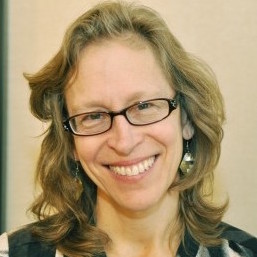
Dr. Molly Jahn
Dr. Molly Jahn is a professor at the University of Wisconsin-Madison where she holds appointments in the Department of Agronomy, the Center for Sustainability and the Global Environment, and the Global Health Institute. She is also appointed Joint Faculty at the Oak Ridge National Laboratory (ORNL) where she chairs the Scientific Advisory Committee of the Energy and Environmental Sciences Directorate. In 2014, she was named the first Lillian Martin fellow at the University of Oxford Martin School.
From 2006-2011, Dr. Jahn served as dean of the University of Wisconsin’s College of Agricultural and Life Sciences and Director of the Wisconsin Agricultural Experiment Station. In 2009-10, she was appointed Deputy and Acting Under Secretary of Research, Education and Economics at the U.S. Department of Agriculture where she oversaw the National Institutes of Food and Agriculture, the Agricultural Research Service, the Economic Research Service and the National Agricultural Statistical Service. She currently co-directs a major USDA grant on dairy sustainability, and leads a global research alliance aimed at catalyzing decision-relevant science and engineering to better characterize and manage systemic risk at the land/water/energy/human security nexus.
Dr. Jahn has lead research programs at the University of Wisconsin and Cornell University which produced crop varieties now grown commercially and for subsistence on six continents. She has >100 peer-reviewed publications and >60 active commercial licenses. She serves on numerous boards and scientific advisory panels around the world including the US National Academies of Science Board on Agriculture and Natural Resources. She consults globally for business, governments, philanthropic organizations, and international multi-lateral institutions focused on agriculture, food, life sciences and environment.
Dr. Jahn received the BA with Distinction in Biology from Swarthmore College, holds graduate degrees from MIT and Cornell University, was assistant, associate and full professor of Plant Breeding and Plant Biology at Cornell University from 1991-2008, and has received Honorary Doctor of Science degrees from Swarthmore College and Anglia Ruskin University.
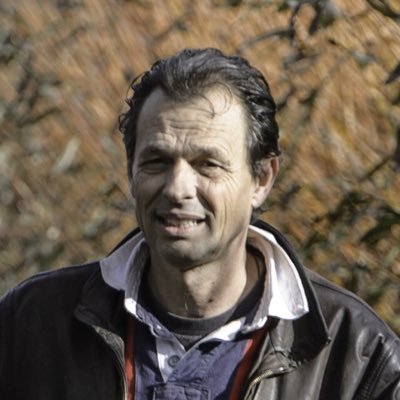
Melchior de Muralt
Melchior de Muralt was born in 1960. He holds a PhD in political sciences from the University of Lausanne.
In 1988, he joined the Lombard Odier private bank, where he promoted the work of the Ethos Foundation for Sustainable Development. In 2001, he became a partner in the asset management firm Pury Pictet Turrettini & Co Ltd. in Geneva. At the same time, he helped found Blue Orchard Finance, a company specializing in the management of investment funds dedicated to the micro-finance industry, where he is currently Vice-Chairman.
Melchior is also President of Cadmos Fund Management, pioneers in shareholder engagement funds based on the principles of the United Nations Global Compact for corporate sustainability. He was elected to the ICRC Assembly in 2012 and a member of the ICRC Audit Commission. He is also chairman of the Joint Commission of the Empress Shôken Fund.
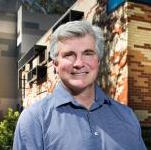
Professor Mark Howden
Mark Howden is the Director of the Climate Change Institute at the Australian National University. He is also an Honorary Professor at Melbourne University, School of Land and Food.
Mark’s work has focused on how climate impacts on, and innovative adaptation options for, systems we value: agriculture and food security, the natural resource base, ecosystems and biodiversity, energy, water and urban systems. He has also developed the national (NGGI) and international (IPCC/OECD) greenhouse gas inventories for the agricultural sector and assessed sustainable methods of reducing net greenhouse gas emissions from agriculture.
Mark has worked on climate variability, climate change, innovation and adoption issues for over 27 years in partnership with farmers, farmer groups, catchment groups, industry bodies, agribusiness, urban utilities and various policy agencies via both research and science-policy roles. Mark has over 390 publications of different types. He has been a major contributor to the Intergovernmental Panel on Climate Change (IPCC) Second, Third, Fourth and Fifth Assessment reports and various IPCC Special Reports, sharing the 2007 Nobel Peace Prize with other IPCC participants and Al Gore. Recently Mark sat on the US Federal Advisory Committee for the 3rd National Climate Assessment and he participates in several other international science and policy advisory bodies.
CSAb Flagship Management
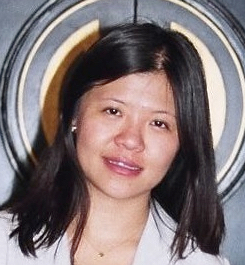
Pan Pan
Pan Pan is the Flagship Manager of the CSA Booster Flagship, and Deputy Director for the Sustainable Land Use theme. She is an entrepreneurial investment professional with broad industry, climate finance and start-up experience.
Previously, Pan was Portfolio Manager and Head of China, Environmental Markets at Bunge Ltd, the global agribusiness and commodities trader, where she was responsible for origination, structuring and management of the China portfolio for the Bunge Emissions Fund and fundraising.
Pan has a BA in Economics from Northwestern University (USA), a MBA from INSEAD (France) and is a Chartered Alternative Investment Analyst (CAIA). She was a Global Leadership Fellow and Associate Director at the World Economic Forum, an Impact Fellow at LGT Impact Ventures and a former professional pianist.
A Chinese-born American, she has been based in Geneva, Switzerland since 2005. She speaks Chinese, English and French. In her free time, she enjoys reading, hiking and traveling.
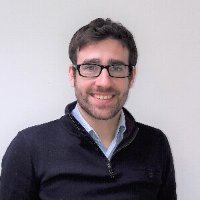
François Gigante
François is Program Management Officer in Climate-KIC's Climate Smart Agriculture Booster, a flagship programme of the Sustainable Land Use theme. Before joining Climate-KIC in 2015, François worked as a consultant to a start-up in the FinTech sector, focused on emerging economies.
Previously, François worked for Bunge, the global agribusiness and commodities trader, in various roles. Starting out on the carbon commodity desk in Switzerland Francois helped grow the department from an internal business to a hedge fund structure managing third party capital.
In 2012, when Bunge acquired Climate Change Capital, François moved to London to help integrate teams and consolidate joint carbon asset portfolios. He ended up managing the full proprietary portfolio of investment (mostly debt-financing) in renewable energy projects and forward transactions for both companies.
François has a Master of Science degree in Physics with a specialization in Energy, Environmental Science and Statistical Physics, and completed a year and half of research for École Polytechnique Fédérale de Lausanne (EPFL) and European Commission in Environmental sciences (JRC).
Sustainable Land Use (SLU), Climate-KIC

Daniel Zimmer
Daniel Zimmer has a global experience on climate and water related issues spanning from engineering to geopolitics and with a particular interest for innovation. He worked for several years (1988-2001) as a researcher and head of a research department in a French Public Research Centre (IRSTEA).
Between 2001 and 2009, Daniel was CEO of the World Water Council, an international umbrella organisation of the water sector based in Marseilles, France. He contributed to the development of this institution and to its triennial flagship event, the World Water Forum. During his time there, he developed political processes for Governments and Local Authorities, and managed projects on financial issues, climate, disasters related to water.
After a short period as a consultant to the UN and other international institutions, he joined the Climate Knowledge and Innovation Community (Climate-KIC) in 2010 as Director for Innovation. He developed and supervised the implementation of a portfolio of innovation activities aiming to accelerate the transition to a low carbon and climate-resilient economy and society. Since 2016, he has been Director of the Sustainable Land Use theme of Climate-KIC.

Pan Pan
Pan Pan is the Flagship Manager of the CSA Booster Flagship, and Deputy Director for the Sustainable Land Use theme. She is an entrepreneurial investment professional with broad industry, climate finance and start-up experience.
Previously, Pan was Portfolio Manager and Head of China, Environmental Markets at Bunge Ltd, the global agribusiness and commodities trader, where she was responsible for origination, structuring and management of the China portfolio for the Bunge Emissions Fund and fundraising.
Pan has a BA in Economics from Northwestern University (USA), a MBA from INSEAD (France) and is a Chartered Alternative Investment Analyst (CAIA). She was a Global Leadership Fellow and Associate Director at the World Economic Forum, an Impact Fellow at LGT Impact Ventures and a former professional pianist.
A Chinese-born American, she has been based in Geneva, Switzerland since 2005. She speaks Chinese, English and French. In her free time, she enjoys reading, hiking and traveling.
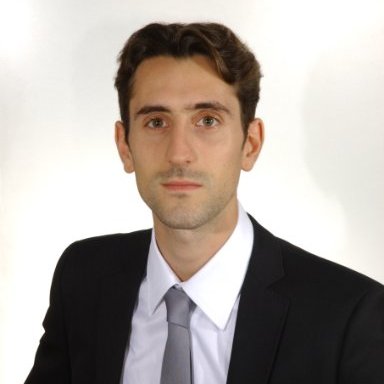
Valerio Bruschi
Valerio joined Climate-KIC's Sustainable Land Use theme in 2017 from Deloitte where he was a junior consultant in their sustainability practice. He has a masters degree from the Universite de Provence in the economy of energy and natural resources.
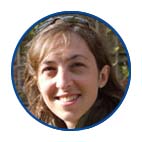
Catherine Laurent-Polz
Catherine is Portfolio Manager for the Sustainable Land Use Theme. She has a background and hold two Master degrees in environmental sciences and biogeography.
She has strong experience in the field of research and international cooperation and started her career as scientific attaché at the French embassy to the Netherlands. From here, she pursued her work as an international cooperation officer at IRSTEA, a French research institute on environment and agriculture. She decided to specialise in European affairs while working at TNO, the Dutch organisation for applied research and has been working at Climate-KIC since July 2014.
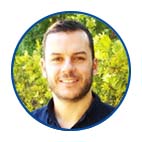
Fabrizio Rossi
Fabrizio Rossi joined Climate-KIC in 2016 as business development lead with a specific focus on sustainable land use. He works in Brussels on a daily basis and travels across Europe to connect Climate-KIC and its portfolio of projects on forestry, food and sustainable agriculture with the international funding and donors community. This work allows him to combine his interest for international cooperation with his passion for trees and forestry.
Previously, Fabrizio has co-created a Belgian start-up implementing reforestation projects in Africa and South America. He has worked in Valencia with the European Commission and developed a platform for improving synergies among EU funding programmes in the Mediterranean area. In its first assignment in Brussels, he was responsible for the management of an international organization for territorial cooperation integrated by 25 provinces from 6 EU countries.
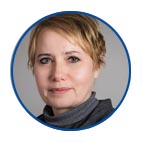
Paola Valandro
Paola is Education Lead at Climate-KIC based in Bologna, Italy. She plans, designs and coordinates Climate-KIC education courses for professionals, public administrators, researchers and students. She engages Italian stakeholders and partners and collaborates with international networks to develop awareness of climate issues.
Between 2013 and 2016, she was Climate KIC Education Manager in Emilia-Romagna, designing and developing training initiatives in the region for professionals, public administrators, researchers. Before this Paola was senior project manager for ASTER S. Cons. p. A.. She has a philosophy masters from the University of Bologna.
